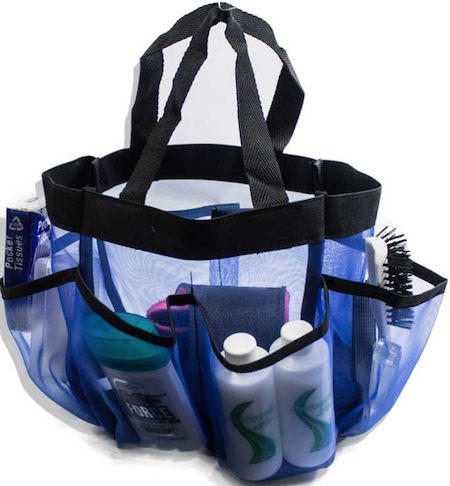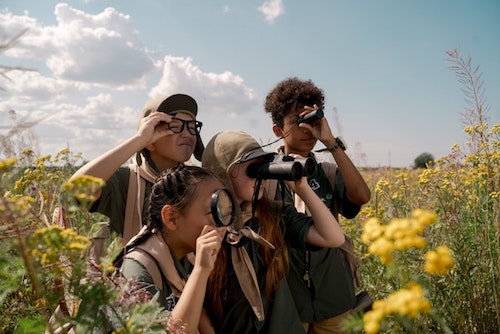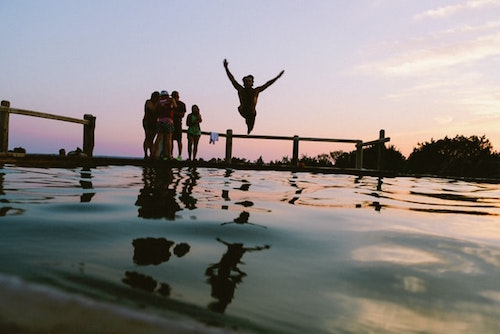Latest Posts
- Cool, Sustainable Packing and Shipping Solutions for Earth Day
- Paper Doll Shares How To Select a Shredder, Shred Responsibly, and Save
- Paper Doll’s Ultimate Guide to Tax-Smart Organizing: 2024
- Paper Doll Explains Aspirational vs. Inspirational Clutter
- Paper Doll Shares 3 Quirky & Cool New Office Supplies
Search Best Results Organizing
Subscribe to the Paper Doll Blog via Email
Send Summer Camp Chaos Packing!
ORGANIZE YOUR KIDS FOR SUMMER CAMP
According to the American Camp Association, 14 million American children will attend camp this summer. Will yours be among them? The concept of summer camp has changed a great deal over the past few generations. Parents like you are busy preparing their children for experiences ranging from classic camp activities like swimming and arts & crafts to entire specialized camp programs for tennis, music lessons, weight loss, computer programming, LGBTQ+ and allyship, entrepreneurship, performing arts, and more.
If you’ve ever spent the last few days before your child leaves for camp in a frenzy, rushing around to get everything on the camp’s “required” list and fighting with your child over whether a beloved video game (and all 15 pounds of electronic accoutrements) really belong in the duffel bag, you may be dreading preparing for camp this year. Instead of spending your last few days together in a chaotic combat zone, follow these tips for you and your child to have a more serene pre-camp experience.
FOLLOW THE BUDDY SYSTEM — Get Kids Involved In the Process
If your children are old enough to sleep away at summer camp, they’re old enough to label their names in their clothes. (Iron-on and sew-in labels are old-school and labor-intensive. Instead, try laundry or fabric markers, or laundry stamps.)

Kids should also help you organize and pack their belongings, not only to learn this ongoing life skill, but to ensure they have a clear sense of what gets packed, and where.
Review the camp’s packing list together to determine what you might need to purchase, gather together, wash, repair or otherwise grab to ensure you are following your child’s camp’s required items. Every camp has different regulations regarding what is (and is not) allowed in terms of belongings and behaviors. Think of this as similar to going on a trip to a foreign country — you certainly don’t want to run afoul of the Customs Agent (that is, the camp director) and risk starting your child off on the wrong foot.
If your child’s camp has not sent a list of suggested or required items, or if you’ve lost the list and time is getting short, peruse some of these links for suggested packing lists to help get started:
What to Pack for Summer Camp
American Camp Association
Summer Camp Packing List
Girl Scouts of Northern California
Suggested Summer Camp Packing List
Boy Scouts of North America — Northeast Georgia Council
Overnight Camp Essentials: A Handy Packing Checklist
Camp Cody, Freedom, New Hampshire
Packing Checklist for Overnight Summer Camp
CampExperts.com

Quick-Dry Shower Caddy from Everything Summer Camp
Depending on your campers or their intended camps, you might want to consider specialty packing lists, such as:
The Ultimate Summer Camp Packing List and Guide
CampLeaders.com, for counselors and counselors-in-training
Preparing for Performing Arts Camp: Tips, Tricks, and Items to Bring
CampExperts.com
Packing for Camp
Diabetes Youth Families
Field Guide for Camps: Common International Questions
Once you’ve reviewed these options and have created your own list (perhaps in a shared note Dropbox, Evernote, Google Drive, or Apple Notes, so you each can add ideas as they come to you), ask your kids to list what else is absolutely necessary for them to bring along to feel safe, comfortable and cool. It might not occur to you that your child feels too old for matching PJs, for example, and would rather sleep in a T-shirt and sweatpants.
Finally, discuss your child’s fears and concerns about attending camp, and then role-play how different items you’re packing can help solve those problems. If your first-time camper is sometimes afraid of the dark, help him practice using the flashlight at night while still at home. If your tween is worried about making new friends, ask her which of her possessions (like a photo of her gang at school or her junior varsity sweatshirt) gives her a good sense of self-confidence, or help her select an intriguing conversation starter to hang in her cabin cubby.
And if your camper is still feeling stressed, share The Wackiest Items People Bring to Camp, which should get you both giggling. Even if you and your kid fussed over packing choices, it’s unlikely either of you argued in favor of taking a trampoline, toaster, ventriloquist dummy, or tuba to summer camp!
BE PREPARED! — Watch the DO’s and DON’T’s of summer camp life.
The key to organizing for summer camp is taking everything you absolutely need (to satisfy requirements and your child’s comfort level) and nothing that is unnecessary or forbidden. Follow these tips:
-
- Go item-by-item through the master checklist you’ve put together (the combination of the camp’s list and your child’s additions) to make sure you own what you need. In addition to the digital list make two printed of the list. Use one for checking items off as you pack them; enclose the second copy so that your child can check things off as he or she packs to return home at the end of the summer.
-
- Purchase anything you need but don’t have, but avoid buying all-new clothes, because camp activities are rough on clothing. Similarly, shop and pack for comfort, not style; unless it’s a specialized camp, the only dressy clothes your child might possibly need are for religious services or a camp dance, and the camp’s instructions should provide guidelines in that regard. Let your child (or your own inner child) make a wish list from an online store like Everything Summer Camp, then do a reality check and shop in big-box discount stores or on Amazon.
-
- Have your child help collect each item (shirts, shorts, bathing suits, bedding, etc.), and lay everything out on the bed as in an assembly line and then check it off the list.

Curious Campers Photo by cottonbro
-
- Don’t pack anything on the camp’s FORBIDDEN list — like gum, food, or video games. Explain the reasoning behind these rules, like avoiding creepy critters in your tent or distracting from camp activities. Similarly, avoid sending anything valuable like jewelry that could be lost, stolen or damaged. Aside from the insurance and financial headaches, your child’s summer might be ruined by pangs of guilt over losing something of value. Summer camp is a perfect opportunity to free yourself and your kids from the “keeping up with the Joneses” mentality.
-
- However, some camps encourage electronics, especially tablets and laptops for educational activities. Check your homeowner/renter insurance policy to see if these will be covered if your camper’s iPad gets dropped down a ravine or purloined by a sticky-fingered bear. Yogi Bear of yesteryear wanted “pic-a-nic” baskets; GenZ’s Yogi wants a MacBookPro!) Additionally, and especially if your child will be attending a tech-oriented computer/coding camp, be sure to pack an inexpensive charging hub and a few USB-A to USB-C adapters.
-
- When it comes to toiletries, send as few items as possible. Products that do double-duty, like a dual shampoo and body wash are especially helpful. Teens may balk at not bringing every hair- and skin-care product they use as part of their daily regimens, but remind them that time and space for using and storing these items will be severely limited. Also, be sure to double-bag liquid toiletries with one zip-lock upside-down inside another to prevent spills.
-
- If your child requires any special medication or durable medical supplies, contact that camp to verify the policies. Children with continuos glucose monitors and insulin pumps will likely be allowed to keep their devices and meds with them, but extra insulin, epi-pens, and controlled meds will likely need to stay in the camp nurse’s office, both for safety/refrigeration and for security. (See the next section for more on kids with special medical needs.)
-
- DON’T OVERPACK! Allow your child to take only what he or she can carry. The counselors and camp staff will expect your kids to carry their own backpacks or bags, so make sure Junior can do so before setting out. When choosing camp luggage, remember that nylon duffels are lighter than canvas ones, both are better than suitcases; plus, they block moisture and are easier to stow in small places, like under a camp cot. Great-Grandpa’s old army trunk may make a great conversation piece, but the counselors are not going to want to help your camper schlep it around.

Sunset Swim Photo by Brooklyn Morgan on Unsplash
HOPE FOR SUN, BUT PLAN FOR STORMY WEATHER
Even the best-laid plans can go astray, and things can go wrong at summer camp just like anywhere else. To help your child deal with potential problems, review these points:
-
- Summer nights are ideally warm, dry, and moonlit. Nonetheless, depending on where the camp is located and the weather patterns of the summer, it can definitely get cold and wet, day or night. Be sure to pack extra socks, long pants, sweatshirts, and a hat.
-
- You know how important it is to protect your child against a bad sunburn, but it’s easy for kids to get caught up in the action. Don’t forget to pack an easy-to-apply high-SPF sunblock and make sure your child knows how often to reapply the protection and to do so on cloudy days, too.
-
- Similarly, there are a variety of insect-repellant sprays and wipes to keep your child itchless and bite-free this summer. Try to get an small, easy-to-maneuver container, and make sure your child knows how to apply it to keep the bugs at bay. If your child is likely to forget to use a spray or wipes, you (and they) may have better luck with anti-mosquito bracelets.

-
- Evaluate options for supplies that don’t need batteries or AC adapters. With minimal effort, you can get radios and flashlights that work by solar power or cranking a handle. It’s better for the environment and your child need not worry about having the right battery sizes.
-
- Avoid sending cash with your kids, except for some singles for use in vending machines. If there’s a camp store, check in advance to see if the camp would prefer you setting up a camp account. Alternatively, find out if the standard is to send kids with Visa gift cards (or phones with CashApp, Zelle, or Venmo) so you can control how much your child spends on non-essentials. Speaking of which…
-
- Rethink sending their phones to camp. It’s a strong temptation for them to be distracted by social media and texting instead of fun (and expensive) camp activities. As recently as a decade ago, we advised packing pre-paid calling card with minimal minutes to use at the payphone for calling home only, but that doesn’t fly these days. Now, while your kids’ camps might eschew cell phones, they are just as likely to require phones for certain activities, like coding classes, voting in polls, or playing music as the background for skits. Check the camp policies, then consider buying a $20 pre-paid smart(ish) cell phone (AKA: burner phones) at Target or Walmart with limited access to apps. And if camp policy does not allow phones, pack a few disposable waterproof cameras.
-
- Create and pack a small First Aid kit with bandages and a topical antibiotic in case your child experiences a small boo-boo when the camp nurse is off-duty. However, don’t include aspirin or any kind of medicines unless the camp specifies that children are allowed to keep their own medical supplies; usually, they’re not. If the bugs love to nibble your kids, add some After-Bite anti-itch soother, or even the modern marvel, Bug Bite Thing suction tool. (It should go without saying, these days, that you’ll want to pack extra KN95 masks, tissues, and hand sanitizer.)
-
- If your child requires medicine on a regular basis, or for allergies or a medical condition like epilepsy or diabetes, be sure you communicate this, in writing, with the camp’s administrative office before the start of the summer. Send a copy of this letter with your child to show the nurse, in case of any miscommunication. The note should include dosages for any medications and the prescribing physician’s name and contact information.
-
- Pack a list of emergency numbers. The camp should have a well-maintained list of all numbers at which to reach you or anyone you designate. However, in case an unforeseen emergency pops up, make sure your child has a list of extra numbers, including grandparents and next-door neighbors. The likelihood of needing the list is low, but the positive impact it will have on your child’s sense of security is high.
SHOW UP FOR MAIL CALL — Deal with mail the RIGHT way!
As the old Allan Sherman song “Hello Muddah, Hello Faddah” reminds us, letters from camp can be amusing.
However, done the right way, letters TO camp can dramatically improve your child’s camping experience. In an era of easy texting and email, it’s possible your child has never received real mail before, and getting messages from home can be a special delight.
-
- Start before your child even leaves for camp. Send a couple of letters or post cards a few days before your child even leaves for camp so there will be mail at the first Mail Call. Also, you might want to tuck a few small notes into your child’s duffel bag so he can feel loved from the minute he starts unpacking. One caution: if your tween or teen is the type who is easily embarrassed, you might want to skip the “mushy” notes and just write something funny or draw a little cartoon of yourself or the dog.
-
- Send care packages, but follow camp rules regarding food and forbidden items. Even if food is allowed, don’t mix food in the same package with soaps or toiletries, or the summer heat will ruin the taste of the food. And if you do send food, try to send less easily perishable foods rather than fresh-baked items that might get stale in the mail. Better yet, skip food altogether and send funny clippings, your home newspaper’s comics pages, and other items that can be enjoyed and then discarded without having to be stored or packed for the return home.
-
- Send smaller children with a stack of pre-addressed and stamped envelopes or post cards so they’ll be more inclined to write. If your child needs encouragement to write even a short reply, try sending letters that ask questions and allow them to check off items from a multiple-choice list or fill-in-the-blank, Mad-Lib® style pages.
-
- Send mail frequently, filled with chatty news. Don’t harp on how much you miss them; if they’re having fun, they’ll feel guilty, and if they’re homesick, they’ll feel it more so. Instead, concentrate on silly stories or mention what you’ll do when you’re back together.
May you and your children have a safe and happy summer!
Copyright © 2007-2022 Julie Bestry and Best Results Organizing. All rights reserved.
About the Author: Julie Bestry is a professional organizer, speaker and author, who helps individuals and businesses save time and money, reduce stress and increase productivity through new organizational skills and systems. Her most recent book is 57 Secrets for Organizing Your Small Business. For information on how Julie can turn your chaos into serenity, visit Best Results Organizing at http://www.juliebestry.com.
You may reprint this article, as long as you include all of the above text, the About the Author box and a working link to http://www.juliebestry.com



Follow Me